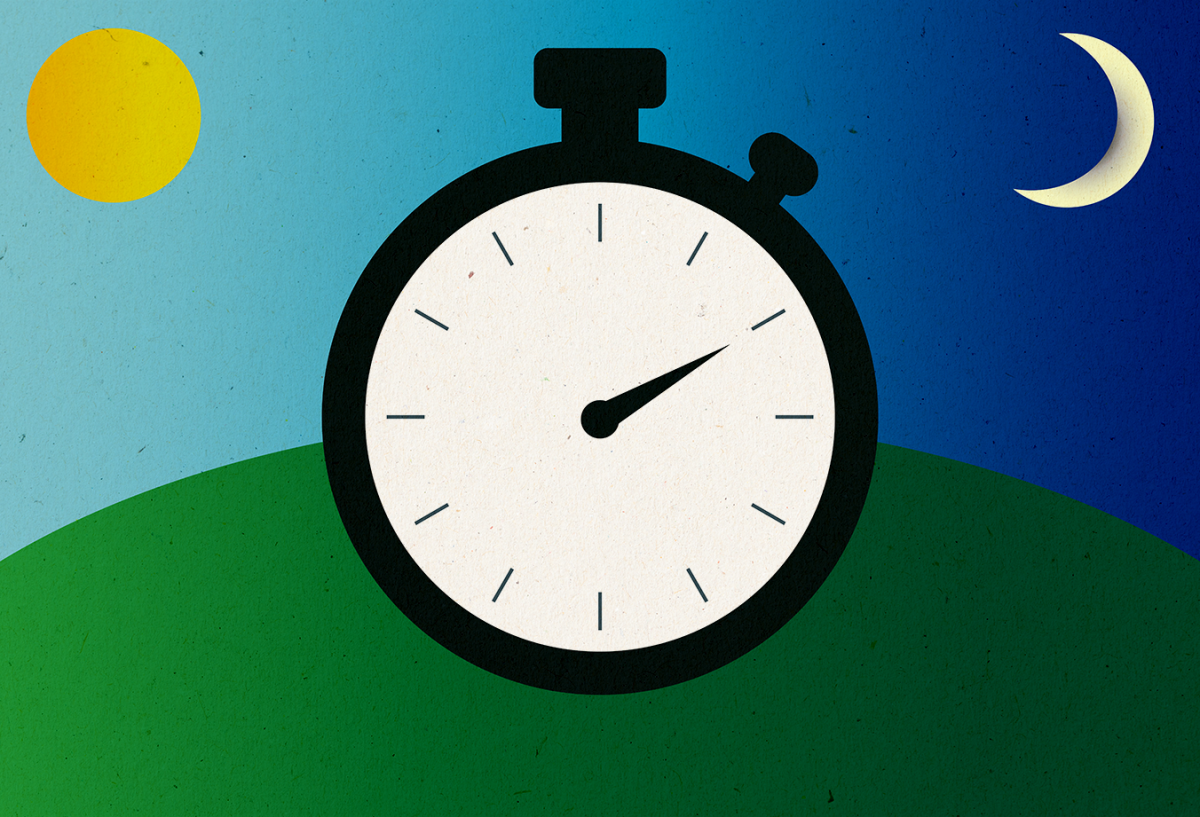If you happened to be up at 1:59 a.m. on Nov. 5, you may have noticed something.
Instead of the clock turning to 2:00 a.m., it was suddenly 1:00 a.m. again. No, you did not time travel. Instead, you witnessed the yearly end of daylight saving time.
In November of every year, time falls backward and daylight saving ends. Daylight saving won’t go back into effect until March of 2024.
This time change is common practice all over America, but some are pushing back to abolish the transition entirely.
The Uniform Time Act forces all states to comply with the daylight saving time change, but 19 states have passed measures to make daylight saving time permanent if the federal government would allow it. Kentucky is among these states.
Why are we enforcing a time change that so many state governments disagree with?
The creation of the daylight saving schedule is debated among opponents and proponents of the time change.
It’s often thought that the change was implemented to benefit farmers, or to conserve fuel and some even point fingers at a farmer in New Zealand. In 1845, George Hudson proposed daylight saving to further his hobby of bug-collecting after work.
No matter how it started, the time change does not seem to have any benefits for our society today.
In fact, daylight saving time should become permanent.
Once daylight saving ends every November, we are all suddenly cast into darkness as early as 5:00 p.m. This has various negative side effects for most people.
Safety is one of the biggest concerns when it comes to the end of daylight saving.
Vivint, a home security company, compiled statistics of crime rates in America according to an FBI database from 2017 to 2021.
According to Vivint, “Robberies increased by 81% after daylight saving time ended in 2021, while burglaries and break-ins increased by 16%.”
The security company also found an 11% increase in overall crime incidents during daylight saving to after the end of daylight saving in 2021.
Walking to or from campus after 5:00 p.m. is hard to avoid when you have classes to study for or projects to work on, but going out during that time feels about as safe as walking around at 12:00 a.m.
Safety is also a concern when it comes to drives after daylight saving.
Driving at night is scary for some, but it is harder to avoid once daylight saving ends. It’s also harder to avoid the increase we see in vehicle-related incidents.
A 2022 study found that the end of daylight saving results in a 16% increase in the number of deer and vehicle collisions.
Another study from Current Biology also found that, “28 fatal accidents could be prevented yearly if the DST transition was abolished.”
Between the low light and common vision problems among drivers, it is understandable that these numbers would increase after daylight saving.
To combat these problems, CNET released a list of nine tips experts say will help keep you safe during the time change.
The tips include keeping your windshield clean, avoiding direct eye contact with other drivers’ headlights and checking headlight alignment during upcoming inspections.
I would like to add a 10th tip: abolish the time change.
Seeing how dangerous the end of daylight saving can be, why do we not keep it in place? Is the safety of citizens becoming less and less of a priority for those with the power to change this issue?
I hope not. I hope to see the abolishment of the time change in my lifetime.


































































































































































RB • Jan 15, 2024 at 8:47 am
I totally AGREE with this!! No one likes it and the statistics prove it!
Cheryl Webb • Jan 14, 2024 at 10:03 pm
It would be great to have longer daylight. Maybe it would stop some of the depression that people experience during the dark . Thank you
Larry • Jan 14, 2024 at 8:59 pm
Spring forward and stay there. It’s on the table, act on it. We are only one of maybe five that do it.
Georgia Spiva • Jan 14, 2024 at 7:28 pm
We need daylight saving time to become permanent
Ronald DArcy • Jan 14, 2024 at 6:51 pm
I think we should note that daylight savings time is bad for our overall health as reported by numerous accredited health professionals who have studied this for years the time we are actually on is the healthiest time.
Kat • Jan 14, 2024 at 4:44 pm
I like the time we have in spring and summer it’s safer and you can get alot more done. When it dark early I feel wore out and don’t want to do anything but sit. Get more depressed on the time where it gets dark sooner I hate this time I would love for us to keep the time where it’s daytime later.
Claraissia Hopper • Jan 14, 2024 at 4:06 pm
I hope it stays when we change in March. Depression is higher from November to March and I think the time change has something to do with that as well.
Paula Terrell • Jan 14, 2024 at 3:05 pm
We DO NOT need to change the time in November. We need to leave it on daylight saving time.
The farmers has a difficult time working in the afternoon in the dark.
Hubert Redmon • Jan 14, 2024 at 11:53 am
Daylight savings time should be permanent!!!!!!!!
Doris • Jan 14, 2024 at 11:09 am
Daylight savings time should be all year .